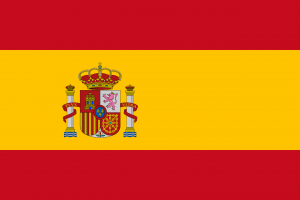Difference between revisions of "Language/Spanish/Vocabulary/Greetings"
< Language | Spanish | Vocabulary
Jump to navigation
Jump to search
m (Quick edit) |
|||
| Line 38: | Line 38: | ||
|''Good evening.'' | |''Good evening.'' | ||
|} | |} | ||
==Related Lessons== | |||
* [[Language/Spanish/Vocabulary/Botanical-Vocabulary|Botanical Vocabulary]] | |||
* [[Language/Spanish/Vocabulary/Spring|Spring]] | |||
* [[Language/Spanish/Vocabulary/Spanish-Slang|Spanish Slang]] | |||
* [[Language/Spanish/Vocabulary/Bar|Bar]] | |||
* [[Language/Spanish/Vocabulary/Confusing-Expressions|Confusing Expressions]] | |||
* [[Language/Spanish/Vocabulary/Colors|Colors]] | |||
* [[Language/Spanish/Vocabulary/Health|Health]] | |||
* [[Language/Spanish/Vocabulary/Conversación-básica-en-un-restaurante|Conversación básica en un restaurante]] | |||
* [[Language/Spanish/Vocabulary/Costarican-Slang|Costarican Slang]] | |||
* [[Language/Spanish/Vocabulary/Animal-Sounds|Animal Sounds]] | |||
Revision as of 17:00, 26 February 2023
| SPANISH | ENGLISH |
|---|---|
| Hola. | Hello. |
| ¿Cómo está?(formal singular) | How are you? |
| ¿Cómo están?(formal plural) | How are you? |
| Hola, ¿cómo está?(formal singular) | Hello. How are you? |
| Hola, ¿cómo están?(formal plural) | How are you? |
| Mucho gusto. | It’s nice to meet you. |
| Gusto en verlo.(formal singular) | It’s nice to see you. |
| Gusto en verlos.(formal plural) | It’s nice to see you. |
| Buenos días. | Good morning. |
| Buenas tardes. | Good afternoon. |
| Buenas noches. | Good evening. |
